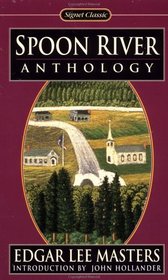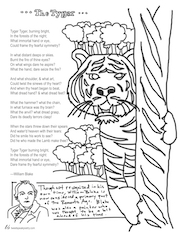I got my first pair of glasses in third grade, and a boy named Alan told me I looked like a teacher. As I did not want to be a teacher, I considered his comment an insult (although he may not have meant it that way). I have often sat with an optician who switched between lenses and said the things Dippold says in this poem:
What do you see now?
Just a moment! And now?
Yes! And now?
Try this.
Very good! And now?
A heavier lens! And now?
Try this.
Oh I see! Try this lens!
Well, now!
That’s better. And now?
Try this lens.
Excellent! And now?
Very well, we’ll make the glasses accordingly.
My lenses are heavy before I pay extra to have them ground down. And my optician has said, “Well, now!” when she realizes I can’t read the big E on the eye chart. But I have never had lenses that made me see what Dippold’s patient sees, certainly not in the order the patient sees them.
Globes of red, yellow, purple
My father and mother and sisters.
Knights at arms, beautiful women, kind faces.
A field of grain—a city.
A young woman with angels bending over her.
Many women with bright eyes and open lips.
Just a goblet on a table.
Just an open space—I see nothing in particular.
Pine trees, a lake, a summer sky.
A book.
I can’t. My eyes are carried beyond the page.
Depths of air.
Light, just light, making everything below it a toy world.
But oh, how I want a pair of glasses that make me see all of the above. I settled for learning Edgar Lee Masters’ poem by heart.
When I first read Spoon River Anthology, I tweeted at Glynn Young, who had written that the 209 poems in this collection come close to being wisdom poetry. Think of each poem as an obituary for a citizen of the fictional town of Spoon River. Each poem functions like a tombstone inscription, telling you exactly what you need to know about that person’s life and death.
One poem may about a wife, and the next may be about her husband, and the two poems may tell very different sides of the same story. Other poems, like this number 178 in the anthology, concern figures in town who are known by their job.
Each lens Dippold the Optician offers gives the patient a new view of what surrounds him. First he sees colored globes, which then become his family, and then those family members are “Knights at arms, beautiful women, kind faces.” A field turns into a young women tended by an angel, and then there are many women. “Nothing in particular” turns into an idyllic setting that reminds me of a lake I love in Colorado. I have no idea what “Depths of air” looks like, but I want a pair of those lenses to see it for myself.
This entire poem reminds me of my friend Lianne, who started the Thursday morning poetry group I attend. As Lianne has gotten older (she’s in her 80s), her poems become more and more surreal while also more and more clear. I can imagine her writing something like this, with its wry sense of humor.
When Dippold the Optician asks the patient to read a page from a book, the lenses won’t allow it: “I can’t. My eyes are carried beyond the page.” I can’t see what the patient sees, but there have been times when my husband has heard me sigh or groan or suck in my breath while reading, and he’ll ask me to read the passage aloud to him. I do, but it’s no good; my eyes are carried beyond the page. He doesn’t have the right lenses.
This poem took me more than a month to learn by heart. I started with the patient’s words. With each line I tried to imagine what a small adjustment might illuminate. I want with all my heart to see “Light, just light,” and I want that lens to be the one I take home so that I might see this “toy world” more clearly.
Spoon River Anthology is more than 100 years old, and it has never been out of print. Reading it made me think not only of the well-known people in my small town but also of the lesser-known folks — the ones I used to see every day, or at least every week, and now I don’t see at all. I’d tell you their names, but this is a small town, with no more anonymity than Spoon River. What I see when I look at these neighbors is only a dim view of who they are. I do not yet have the right lenses.
Your Turn
Did you memorize “Dippold the Optician” this month? Join our By Heart community and share your audio or video using the hashtags #ByHeart and #MemoriesWithFriends and tagging us @tspoetry. We also welcome photos of your handwritten copy of the poem
By Heart for April, National Poetry Month
For the next By Heart gathering, April 24, we’ll learn The Tyger by William Blake by heart. We’ll be learning it in conjunction with the selection for the Children’s Book Club, Fear the Bunny, which features Blake’s poem in an unusual way. While you learn the poem, de-stress a little with our poetry coloring book from Will Willingham.
Photo by Andrew E. Larsen, Creative Commons, via Flickr. Post by Megan Willome.
Browse more By Heart
“Megan Willome’s The Joy of Poetry is not a long book, but it took me longer to read than I expected, because I kept stopping to savor poems and passages, to make note of books mentioned, and to compare Willome’s journey into poetry to my own. The book is many things. An unpretentious, funny, and poignant memoir. A defense of poetry, a response to literature that has touched her life, and a manual on how to write poetry. It’s also the story of a daughter who loses her mother to cancer. The author links these things into a narrative much like that of a novel. I loved this book. As soon as I finished, I began reading it again.”
—David Lee Garrison, author of Playing Bach in the D. C. Metro
- Perspective: The Two, The Only: Calvin and Hobbes - December 16, 2022
- Children’s Book Club: A Very Haunted Christmas - December 9, 2022
- By Heart: ‘The night is darkening round me’ by Emily Brontë - December 2, 2022




Mark Gutowski says
I have often felt that in some way, the photos that I create are poetic, but never knew enough about poetry to know why. After reading your interpretation of Dippold the Optician, I am convinced of it. As a photographer, like Dippold’s patient, I often see what others do not while looking through my camera’s lens. Taking the same photo several times while changing the “lens” (zoom, f-stop & shutter speed) brings other things into view, completely changing what is seen. I know that I created a good image when those looking at it see what I saw when I captured it. Like poetry, my photos evoke different emotions in all who see them. I ordered you book and look forward to reading it. Thanks for sharing.
Megan Willome says
Mark, I’m so grateful for your perspective (pun intended) as a photographer. I agree that poetry and photography share a lot of sensibilities. “Dippold the Optician” grabbed me from the moment I found it. Right now I’m going through my parents’ photos, and there are moments when “globes of red, yellow, purple” become family members and then become “knights at arms, beautiful women, kind faces.”
And thank you for ordering the book.